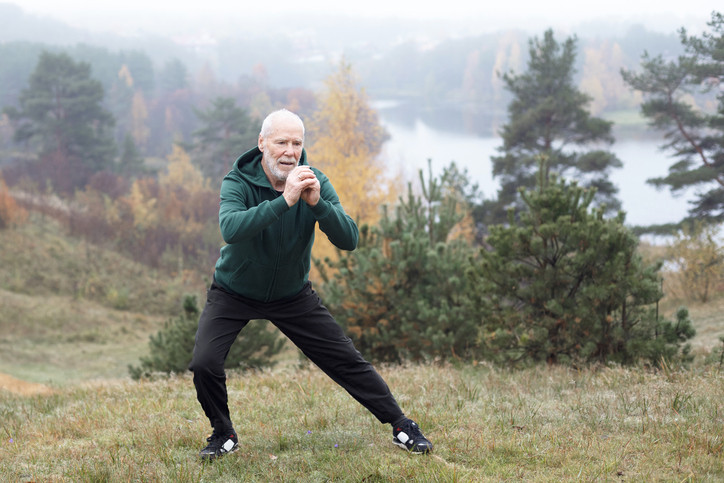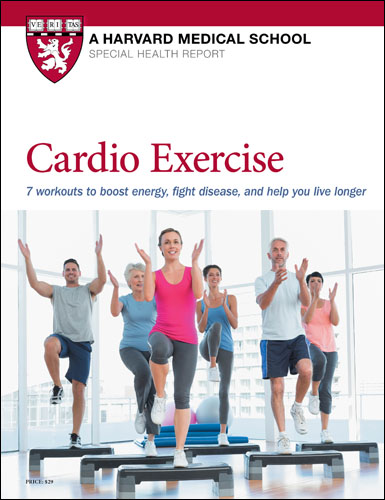How much exercise does it take to avoid heart problems in your 70s?
News briefs
- Reviewed by Anthony L. Komaroff, MD, Editor in Chief, Harvard Health Letter; Editorial Advisory Board Member, Harvard Health Publishing

Any amount of exercise is better than none. But at least 20 minutes of daily physical activity could be the sweet spot for avoiding cardiovascular problems in your 70s, according to an observational study from Italy, published online Feb. 14, 2022, by the journal Heart. The study included almost 2,800 people ages 65 or older who were followed for more than 20 years. People who got between 20 and 40 minutes per day of moderate-intensity activity (such as brisk walking) or vigorous-intensity activity (such as gardening, working out in a gym, biking, dancing, or swimming) had fewer heart attacks and cardiovascular problems and a lower risk of premature death, compared with people who weren't physically active. And among men, at least 20 minutes of daily exercise was associated with a 52% lower risk of cardiovascular problems, compared with people who didn't exercise. The greatest benefits were seen among men ages 70 to 75. Because the study is observational, it doesn't prove conclusively that exercise prevents heart disease. However, many studies have shown that moderate- or vigorous-intensity exercise helps protect your heart and brain; helps prevent diabetes, cancer, and other chronic diseases; and reduces the risk for premature death.
Image: © shurkin_son/Getty Images
About the Author

Heidi Godman, Executive Editor, Harvard Health Letter
About the Reviewer

Anthony L. Komaroff, MD, Editor in Chief, Harvard Health Letter; Editorial Advisory Board Member, Harvard Health Publishing
Disclaimer:
As a service to our readers, Harvard Health Publishing provides access to our library of archived content. Please note the date of last review or update on all articles.
No content on this site, regardless of date, should ever be used as a substitute for direct medical advice from your doctor or other qualified clinician.
















